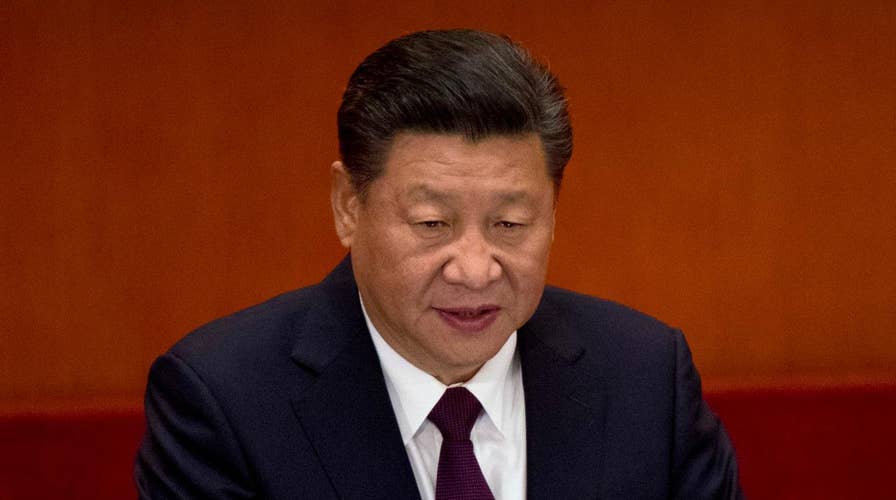5 more years at China's helm for Xi Jinping
Tillerson says the U.S. will confront China's aggression.
Let's say China's President Xi Jinping has just delivered a three-hour speech, as he did earlier this week at the Communist Party's congress in Beijing.
You want to applaud the president, perhaps even more than your neighbor does. What can you do?
A Chinese tech company may have the answer. It released a new game this week that challenges people to applaud President Xi as many times as possible in 19 seconds.
The game -- from Tencent, which also produced the WeChat messaging app -- has proved to be a massive success in the wake of Xi’s recent speech, cementing his grip on power. It racked up 1.2 billion plays over just three days, with most players sharingb their scores on social media.
Players are shown extracts of Xi’s speech on subjects such as improved lives of poor farmers or regulating the housing market to ensure the young homebuyers can afford property – and then are asked to applaud by clicking a mobile’s screen.
During the ruling Communist Party’s national congress, the president announced a “new era” of China’s rise in international prestige. It is largely expected that the congress delegates will grant him a second five-year term as party leader next week.
Xi, at age 64, is already among China's most powerful leaders since Mao Zedong, who ruled from 1949 until his death in 1976 at age 82. He accumulated more power than any previous Chinese leader in decades as well as contained the opposition within the party.
His political theory and philosophy is set to be included in the constitution – a move further strengthening the leader’s power and elevating his cult in the Chinese politics. Such honors are normally given to leaders much later in their political life.
The game is just one of the examples of how the authoritarian government tries to use popular and internet culture to foster support for the party and the ruling regime, with particular emphasis on Xi’s cult.
The Chinese government reportedly considered buying stakes in tech companies, including Tencent – the company behind the game. The company was also fined in the past by Chinese regulators for failing to censor certain content shared on their messaging app WeChat.
The Associated Press contributed to this report.

